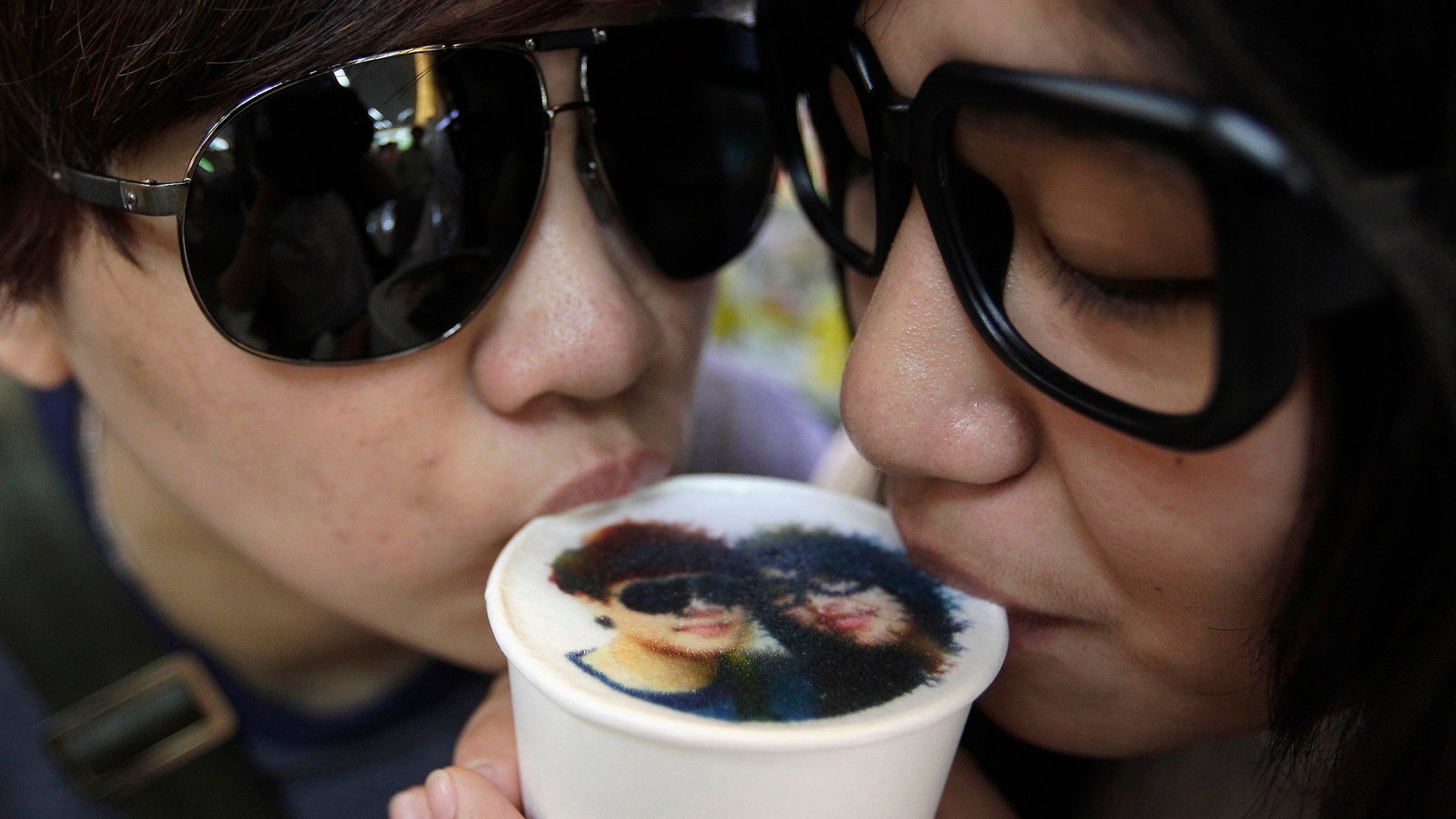Frappuccinos are kids’ gateway drug to caffeine addiction
Instead of getting wired from drinking soda, like the kids of the past, American children are now getting their caffeine fix from a new source: coffee. And specialty drinks filled with cream and sugar could be to blame.


Instead of getting wired from drinking soda, like the kids of the past, American children are now getting their caffeine fix from a new source: coffee. And specialty drinks filled with cream and sugar could be to blame.
American children consume less caffeine than they did a decade ago, but a study published in Pediatrics found that the 2-22 set can now thank coffee for nearly a quarter of their daily caffeine intake, up from 10% a decade ago. The caffeine consumed via soda dropped from 62% to 38%. Soda’s significant loss of drinkers could be because of a cultural shift. While soda was once perceived as healthier than coffee, the roles have now been switched. (Surprisingly, energy drinks only accounted for around 6% of youth caffeine consumption.)
Why are kids guzzling down coffee instead of cola? Once considered part of a healthy diet, soda consumption has increasingly been tied to childhood obesity and behavioral problems. Marketers are left swinging between offering “natural” products and pushing their diet soft drinks as an alternative to calorie-heavy regular soda. But studies have found that the fake sugar in diet soda could actually make people more hungry, and wreck their bodies’ ability to react to the real thing—so kids end up packing on the pounds anyway.
Our perception of coffee has gone in the other direction. In moderation, most studies now suggest, coffee itself is actually pretty good for you. But it’s the rest of what’s in that cup that worries health experts. Coffee historian Mark Pendergrast told MarketWatch that speciality coffee shops like Starbucks have made the drink “hip and cool,” but the drinks that appeal most to kids are only distant cousins of a black cup of Joe. “The milk and added sugar [in drinks like the Starbucks Frappuccino] cut the acidity and make it more palatable for children,” he said, “and for adults, for that matter.” These fats and sugars counteract the potential benefits of drinking coffee.
Per ounce, regular Coke actually has the same amount of sugar as bottled Mocha Frappuccino (3.3 grams) and fewer calories (12 per oz for the soda and 19 per oz for the coffee drink). A bottle of Frappuccino also has 3 grams of fat per serving, while coke is fat-free. Clearly, neither drink is healthy—but parents should be wary of assuming that sugary coffee drinks are a better caffeine fix than the carbonated alternative.
Starbucks owes much of its recent success to its expanded menu and wide offering of specialty drinks. Soon, the chain may even sell carbonated coffee drinks—though it’s hard to say if a fizzy Frappuccino will tempt kids any more than the flat version.